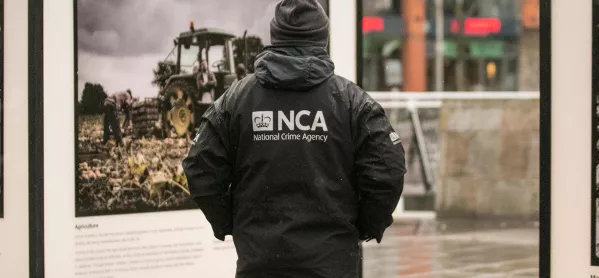Britain’s most senior financial policeman has urged private schools to carry out more background checks on pupils’ families - even if it’s just a quick “Google check”.
Donald Toon, head of economic and cyber crime at the National Crime Agency (NCA), said criminals were targeting private schools across the board and bursars needed to be more aware of the risks.
“There is an overarching responsibility here to do more,” he told Tes. “We have a number of areas where I am identifying very, very high-risk individuals, suspect individuals, who have children in public schools.”
He said the NCA received fewer than 10 Suspicious Activity Reports (SARs) flagging possible criminal activity from schools last year, out of a total of some 462,000.
Independent school leaders have reacted angrily to previous comments from Mr Toon and economic crime minister Ben Wallace that accused them of profiting from the proceeds of organised crime.
Private school heads called the claims “rubbish,” saying they already adhered to anti-money laundering laws and could not be expected to trace the provenance of every payment.
But in an interview with Tes, Mr Toon said “this is not about kicking people” or expecting schools to carry out investigations.
“We’re not asking anybody to trace the source of money,” he added. “What we’re really saying is: look, do some background checks.”
These include being aware of high-risk countries listed by organisations such as Transparency International, checking sanctions lists or flagging any attempts to pay fees in cash.
Bursars should do a “Google check” to find out if a pupil’s parents are known to have criminal links, or be suspicious if their salary is so low they could not possibly afford the fees legitimately, he added.
“It’s hardly onerous,” he said. “Suspicion is a very, very low threshold.”
Several British private schools have been caught up in international money laundering scams in recent years, with many of them linked to former Soviet states.
Last year it was reported that Queen Ethelburga’s Collegiate, a private boarding school near York, received almost £90,000 in 2014 from a fund used to launder money from Azerbaijan’s ruling elite. There is no suggestion that the school was aware of the origin of the money.
Also in 2014, Moldovan police alleged that British private school Millfield received payments arising from a £14 billion international money-laundering operation. Again there is no suggestion of any wrongdoing by the school, or that it was aware of the origin of the money.
James Ibori, the Nigerian who received a 13-year jail sentence after admitting fraud, also paid for his children to attend a UK private school.
The NCA estimates that some 4,600 criminal gangs operate in the UK and cost the economy at least £37 billion a year.
Mr Toon said the NCA’s increasing focus on money laundering was likely to mean more attention on private schools.
“Certainly I could see us having a more active interest in this space in the future,” he said.
The Independent Schools Council (ISC) said it was working with the Independent Schools’ Bursars Association (ISBA) and the Home Office to update guidance for schools.
ISC general secretary Julie Robinson said that “schools fully accept their responsibility to make Suspicious Activity Reports”.
She added: “There is now a greater expectation on schools to ascertain the provenance of fee payments. We have been and will continue to help schools understand any new responsibility.”
When contacted for comment, the Home Office quoted Mr Wallace urging school bursars “to ask themselves if from the outset the payments pass a basic ‘sniff’ test”.
“Who does it come from? How is the payment made? Where and in what form is the payment being made and why? That should be a basic starting point,” he said.




